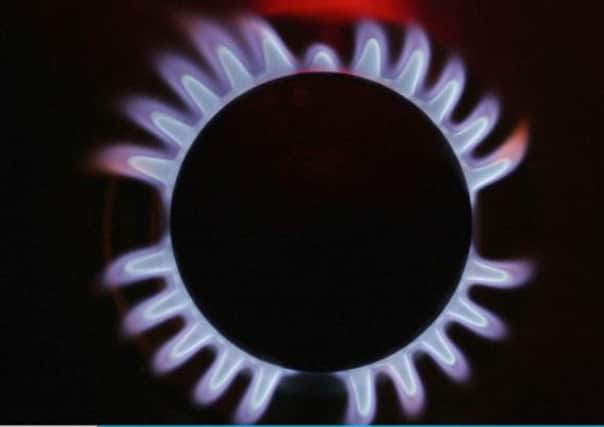Big six generating £53 profit from every household


An analysis of the accounts of the big six energy firms by industry watchdog Ofgem found that overall profits in the part of the businesses which supply electricity and gas to homes leapt from £681 million in 2011 to £1.19 billion last year.
The figures will anger cash-strapped consumers, who have suffered from spiralling bills in recent years as the major firms insisted they needed to hike prices to cover rising wholesale costs.
Advertisement
Hide AdAdvertisement
Hide AdOfgem warned the companies that making profits was “not an entitlement” and said they needed to earn customer loyalty through effective business management and good customer service.
The energy companies have hit back at the report, arguing that the figures do not take into account their “huge” investments in power infrastructure, or tax payments.
“Making a profit is not an entitlement,” Ofgem said in its report, which is published annually. “It should be earned by suppliers gaining and retaining customers, offering competitive prices, the right products and good customer service. How efficiently suppliers run their businesses also determines the profits they make.”
The report, based on findings from accountancy firm BDO, which analysed the companies’ full-year statements, revealed that the leading firms – including Scottish companies ScottishPower and SSE – made an average of £53 profit per household in 2012.
It said the profit growth was due to a sharp increase in energy consumption by households during the cold winter months, but reiterated that it believed competition in the energy markets “is not working as well as it could”. Revenues grew 50 per cent faster than costs over the year, Ofgem revealed.
“Importantly, 2010 and 2012 were unusually cold years,” the report said. “This meant consumers used more gas, mainly for heating. Higher prices combined with higher consumption resulted in higher revenues and profits in those years.”
The overall average profits for energy supply and generation, which covers power stations, coal plants and wind farms, fell from £3.9bn in 2011 to £3.7bn. Profits in supplying both households and businesses combined increased from £1.25bn in 2011 to £1.6bn in 2012.
The regulator said that while profit was necessary in the power generation side of the business – to allow for investment in power plants and new technologies – high profit margins were not needed in the power supply side of an energy business.
Advertisement
Hide AdAdvertisement
Hide AdThere have been calls from politicians and consumer groups in recent months for power generation and supply arms of energy companies to be separated.
“The generation part of a supplier’s business needs to invest significant sums of money over the long term in building new power stations,” said Ofgem. “So a higher margin is needed to ensure the companies can afford this investment. The supply side of the business does not need to make such investments.”
Centrica, the owner of Scottish Gas, had the highest profit margin in 2012 at 6.6 per cent for supplying electricity and gas to households and industry.
EDF Energy had the lowest margin, making a loss of 1.4 per cent last year.
Trades Union Congress general-secretary Frances O’Grady called for a price cap on utility bills, which have seen further rises of between 8.2 and 10.4 per cent in recent months.
“Ofgem shows excess profits are the real source of soaring energy bills,” she said.
“With the government prepared to cap pension charges and payday loan interest, they should do the same for energy bills, and stop suggesting that anyone who supports a price cap lives in a Maoist commune.”
Labour has pledged that it will freeze energy bills if elected, although the Scottish Government has said that it will not follow that lead if Scotland becomes independent following the referendum next year.
Advertisement
Hide AdAdvertisement
Hide AdThe coalition government is widely expected to announce changes next month to the way it levies charges on bills to pay for energy efficiency measures, and has revealed it plans a “competition test” to identify ways the market can become more competitive.
Ofgem has introduced measures to try to create competition, including the opening up of wholesale electricity for independent suppliers, which would then be able to compete with the big six.
The regulator is carrying out an assessment and is due to publish its findings next March.
Ann Robinson, director of consumer policy at uSwitch.com, branded the raft of figures included in the report “confusing” and said competition between energy companies needed to emulate that of the supermarket industry.
“If anything demonstrates the need to get on with this competition test that the government has proposed, it is this report,” she said. “We need to remove barriers to get new entrants to the energy market and we need greater transparency over what companies are actually making from us.”
Energy UK, which represents the utility companies, acknowledged Ofgem’s claim that the main reason for price increases was the rising cost of gas and electricity. “Ofgem’s report sets out the earnings before tax paid for supply side and for generation,” a spokesman said. “The
figures do not take into account the costs of the huge investment the energy companies are making, the interest or the tax they are paying. These are not net profit figures.
“Earnings from generation pay for major investment the industry is making. The generation figure of earnings before interest and tax of 20 per cent is not, as Ofgem acknowledges, ‘a meaningful measure of profitability’. Energy UK is therefore asking Ofgem to use much more meaningful figures.”
READ MORE